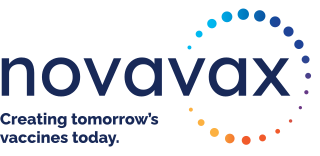Related Research Articles

The Bill & Melinda Gates Foundation (BMGF) is an American private foundation founded by Bill Gates and Melinda French Gates. Based in Seattle, Washington, it was launched in 2000 and is reported to be the second largest charitable foundation in the world, holding $69 billion in assets as of 2020. The primary stated goals of the foundation are to enhance healthcare and reduce extreme poverty across the world, and to expand educational opportunities and access to information technology in the U.S. Key individuals of the foundation include Warren Buffett, chief executive officer Mark Suzman, and Michael Larson.
The European and Developing Countries Clinical Trials Partnership (EDCTP) is a partnership between the European Union (EU), Norway, Switzerland and developing countries and other donors, as well as the pharmaceutical industry, to enable clinical trials and the development of new medicines and vaccines against HIV/AIDS, tuberculosis, and malaria. The need for global action against these diseases in order to promote poverty reduction has been recognised by the United Nations, the G8, and the African Union, and the program envisioned the provision of €600 million for the period 2003–2007 in order to translate medical research results into clinical applications relevant to the needs of developing countries.
Tuberculosis (TB) vaccines are vaccinations intended for the prevention of tuberculosis. Immunotherapy as a defence against TB was first proposed in 1890 by Robert Koch. As of 2021, the only effective tuberculosis vaccine in common use is the Bacillus Calmette-Guérin (BCG) vaccine, first used on humans in 1921. It consists of attenuated (weakened) strains of the cattle tuberculosis bacillus. It is recommended for babies in countries where tuberculosis is common.
Agenus Inc. is a Lexington, Massachusetts-based biotechnology company focused on immunotherapy including immuno-oncology, a field that uses the immune system to control or cure cancer. The company is developing checkpoint modulators (CPMs), patient-specific anti-cancer vaccines, and adjuvants desugned for use with various vaccines. CPM development is a particularly fast-moving field, since early products have produced unprecedented clinical benefits for patients.
Malaria vaccines are vaccines that prevent malaria, a mosquito-borne infectious disease which affected an estimated 249 million people globally in 85 malaria endemic countries and areas and caused 608,000 deaths in 2022. The first approved vaccine for malaria is RTS,S, known by the brand name Mosquirix. As of April 2023, the vaccine has been given to 1.5 million children living in areas with moderate-to-high malaria transmission. It requires at least three doses in infants by age 2, and a fourth dose extends the protection for another 1–2 years. The vaccine reduces hospital admissions from severe malaria by around 30%.

Hookworm vaccine is a vaccine against hookworm. No effective vaccine for the disease in humans has yet been developed. Hookworms, parasitic nematodes transmitted in soil, infect approximately 700 million humans, particularly in tropical regions of the world where endemic hookworms include Ancylostoma duodenale and Necator americanus. Hookworms feed on blood and those infected with hookworms may develop chronic anaemia and malnutrition. Helminth infection can be effectively treated with benzimidazole drugs, and efforts led by the World Health Organization have focused on one to three yearly de-worming doses in schools because hookworm infections with the heaviest intensities are most common in school-age children. However, these drugs only eliminate existing adult parasites and re-infection can occur soon after treatment. School-based de-worming efforts do not treat adults or pre-school children and concerns exist about drug resistance developing in hookworms against the commonly used treatments, thus a vaccine against hookworm disease is sought to provide more permanent resistance to infection.

The Infectious Disease Research Institute (IDRI) was a non-profit organization based in Seattle, in the United States, and which conducts global health research on infectious diseases. Its new name is Access to Advanced Health Institute (AAHI).

RTS,S/AS01 is a recombinant protein-based malaria vaccine. It is one of two malaria vaccines approved. As of April 2022, the vaccine has been given to 1 million children living in areas with moderate-to-high malaria transmission, with millions more doses to be provided as the vaccine's production expands. 18 million doses have been allocated for 2023-2025. It requires at least three doses in infants by age 2, with a fourth dose extending the protection for another 1–2 years. The vaccine reduces hospital admissions from severe malaria by around 30% and reduces toddler deaths by 15%.

GAVI, officially Gavi, the Vaccine Alliance is a public–private global health partnership with the goal of increasing access to immunization in poor countries. In 2016, Gavi channeled more than half of total donor assistance for health, and most donor assistance for immunization, by monetary measure.

CureVac N.V. is a German biopharmaceutical company. It develops therapies based on messenger RNA (mRNA). Headquartered in Tübingen, Germany, the company was founded in 2000 by Ingmar Hoerr (CEO), Steve Pascolo (CSO), Florian von der Mulbe (COO), Günther Jung, and Hans-Georg Rammensee. CureVac has had approximately 375 employees since May 2018.

Novavax, Inc. is an American biotechnology company based in Gaithersburg, Maryland, that develops vaccines to counter serious infectious diseases. Prior to 2020, company scientists developed experimental vaccines for influenza and respiratory syncytial virus (RSV), as well as Ebola and other emerging infectious diseases. During 2020, the company redirected its efforts to focus on development and approval of its NVX-CoV2373 vaccine for COVID-19.
The Global Health Innovative Technology Fund, headquartered in Japan, is an international public-private partnership between the Government of Japan, 16 pharmaceutical and diagnostics companies, the Bill & Melinda Gates Foundation, the Wellcome Trust and United Nations Development Programme. It funds scientific research and development for anti-infectives and diagnostics for diseases that primarily affect the developing world. Bill Gates has noted that "GHIT draws on the immense innovation capacity of Japan’s pharmaceutical companies, universities and research institutions to accelerate the creation of new vaccines, drugs and diagnostic tools for global health." Margaret Chan, former Director-General of the World Health Organization, said: "The GHIT Fund has stepped in to provide that incentive in a pioneering model of partnership that brings Japanese innovation, investment and leadership to the global fight against infectious disease."

The Coalition for Epidemic Preparedness Innovations (CEPI) is a foundation that takes donations from public, private, philanthropic, and civil society organisations, to finance independent research projects to develop vaccines against emerging infectious diseases (EID).
The Bill & Melinda Gates Medical Research Institute is a non-profit biotechnology organization founded with the aim of bringing technologies and strategies to bear on the main health problems of the poor in low-income countries. The Gates MRI was organized as a subsidiary of the Bill & Melinda Gates Foundation who funded it with a $273 million 4-year grant.

Medicago Inc. was a Canadian biotechnology company focused on the discovery, development, and commercialization of virus-like particles using plants as bioreactors to produce proteins, candidate vaccines, and medications. By using live plant leaves as hosts in the discovery and manufacturing process, the Medicago "Proficia" technology intended to create a rapid, high-yield system for its product candidates. Privately owned by a subsidiary of Mitsubishi Tanabe Pharma, Medicago and its product development programs were terminated by Mitsubishi in February 2023.

CoVLP was a COVID-19 vaccine developed by Medicago in Canada and GlaxoSmithKline (GSK). The product and Medicago, Inc. were owned by Mitsubishi who terminated the company and program in February 2023 due to high international market competition for COVID-19 vaccines.

SCB-2019 is a protein subunit COVID-19 vaccine developed by Clover Biopharmaceuticals using an adjuvant from Dynavax technologies. Positive results of Phase I trials for the vaccine were published in The Lancet and the vaccine completed enrollment of 29,000 participants in Phase II/III trials in July 2021. In September 2021, SCB-2019 announced Phase III results showing 67% efficacy against all cases of COVID-19 and 79% efficacy against all cases of the Delta variant. Additionally, the vaccine was 84% effective against moderate cases and 100% effective against hospitalization.

The Sanofi–GSK COVID-19 vaccine sold under the brand name VidPrevtyn Beta, is a COVID-19 vaccine developed by Sanofi Pasteur and GSK.

Corbevax is a protein subunit COVID-19 vaccine developed by Texas Children's Hospital Center for Vaccine Development and Baylor College of Medicine in Houston, Texas and Dynavax technologies based in Emeryville, California. It is licensed to Indian biopharmaceutical firm Biological E. Limited (BioE) for development and production.

202-CoV is a COVID-19 vaccine candidate developed by Shanghai Zerun Biotechnology Co., Ltd., Walvax Biotech. It is one of several candidates under development by Walvax.
References
- 1 2 Barry-Jester, Anna Maria (4 October 2023). "How a Big Pharma Company Stalled a Potentially Lifesaving Vaccine in Pursuit of Bigger Profits". ProPublica. Retrieved 18 November 2023.
- ↑ Tozer, Lilly (28 June 2023). "Promising tuberculosis vaccine gets US$550-million shot in the arm". Nature. doi:10.1038/d41586-023-02171-x.
- ↑ "Press Release: Funding Late-Stage Development of M72 TB Vaccine Candidate". Bill & Melinda Gates Foundation. Retrieved 18 November 2023.
- ↑ Tait, Dereck R.; Hatherill, Mark; Van Der Meeren, Olivier; Ginsberg, Ann M.; Van Brakel, Elana; Salaun, Bruno; Scriba, Thomas J.; Akite, Elaine J.; Ayles, Helen M.; Bollaerts, Anne; Demoitié, Marie-Ange; Diacon, Andreas; Evans, Thomas G.; Gillard, Paul; Hellström, Elizabeth; Innes, James C.; Lempicki, Maria; Malahleha, Mookho; Martinson, Neil; Mesia Vela, Doris; Muyoyeta, Monde; Nduba, Videlis; Pascal, Thierry G.; Tameris, Michele; Thienemann, Friedrich; Wilkinson, Robert J.; Roman, François (19 December 2019). "Final Analysis of a Trial of M72/AS01 E Vaccine to Prevent Tuberculosis". New England Journal of Medicine. 381 (25): 2429–2439. doi: 10.1056/NEJMoa1909953 . hdl: 10044/1/74245 .